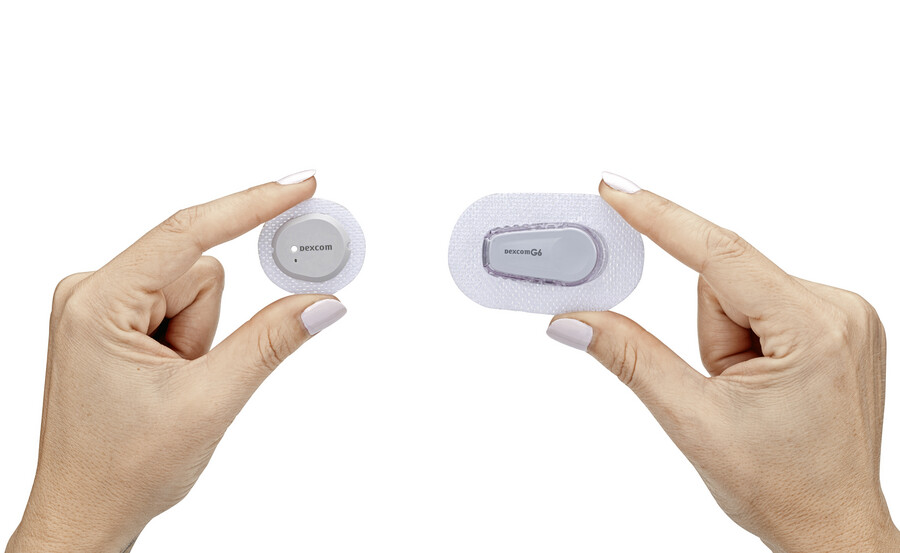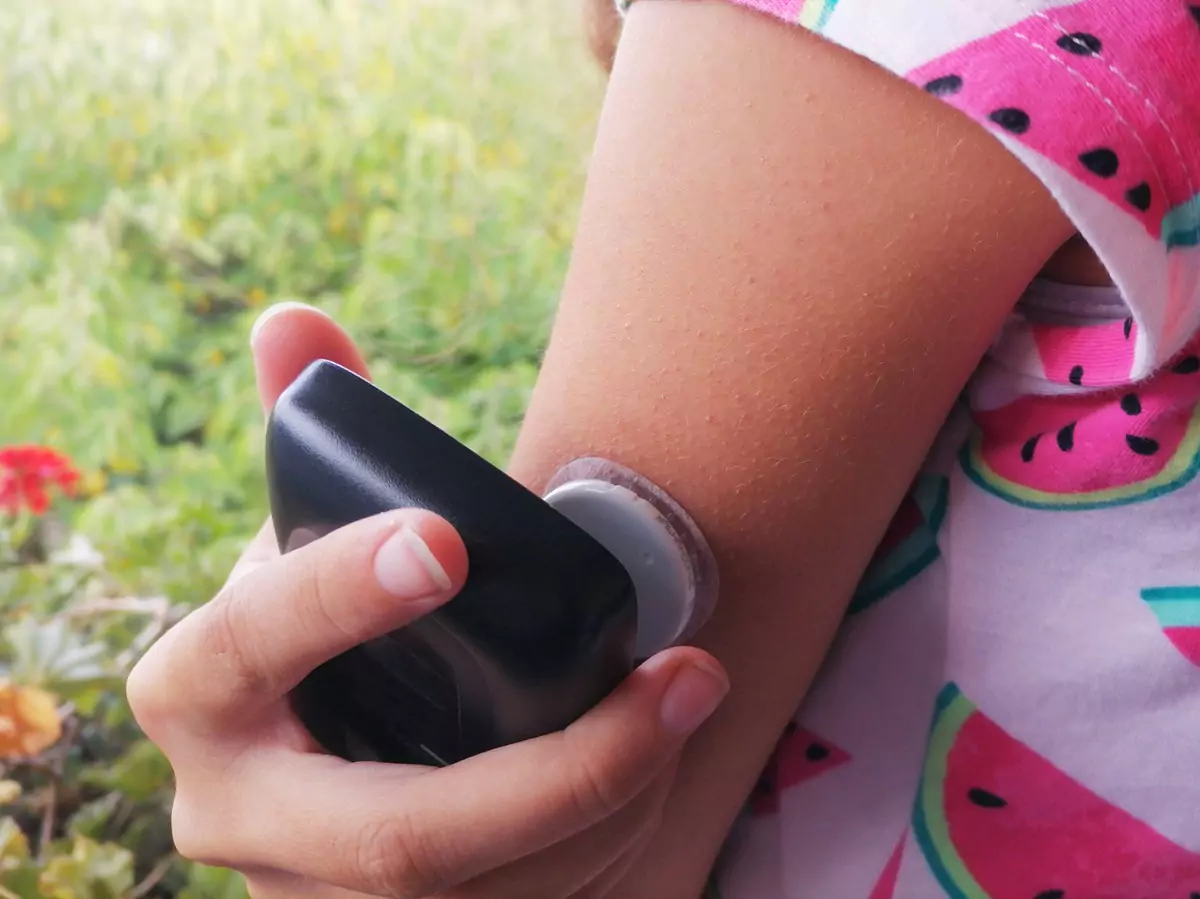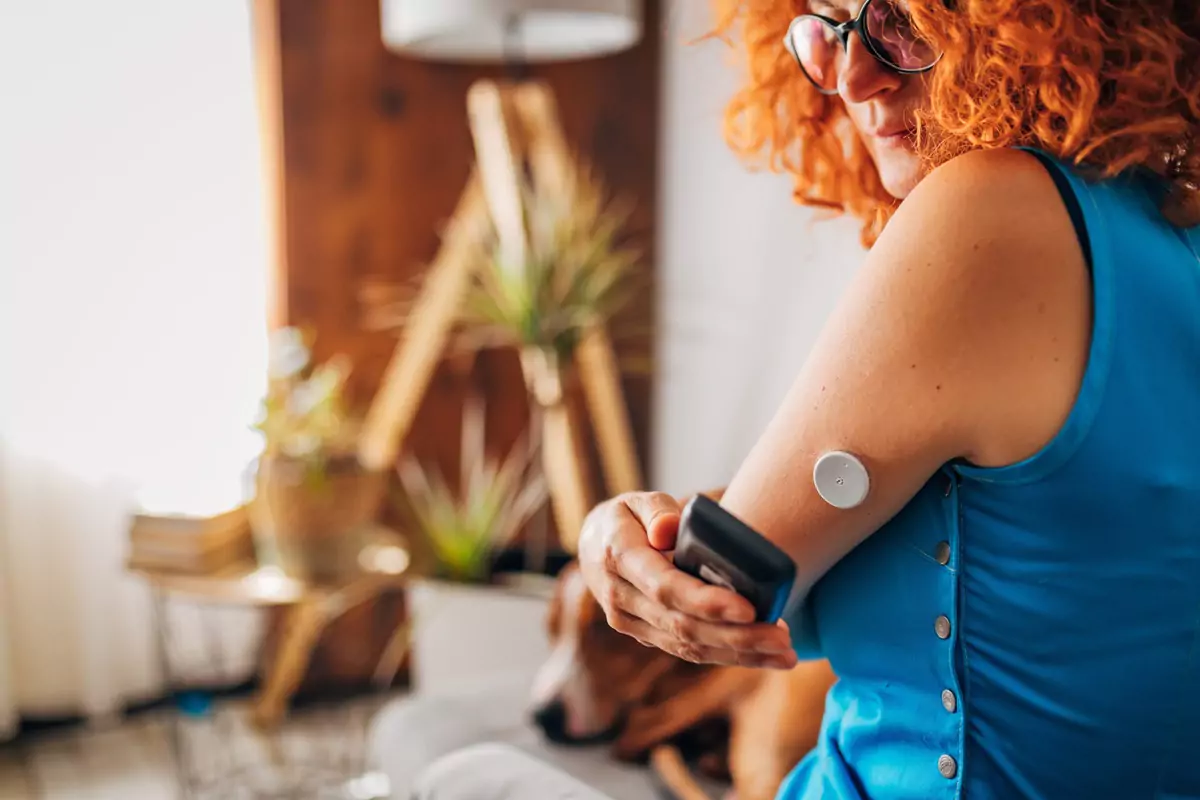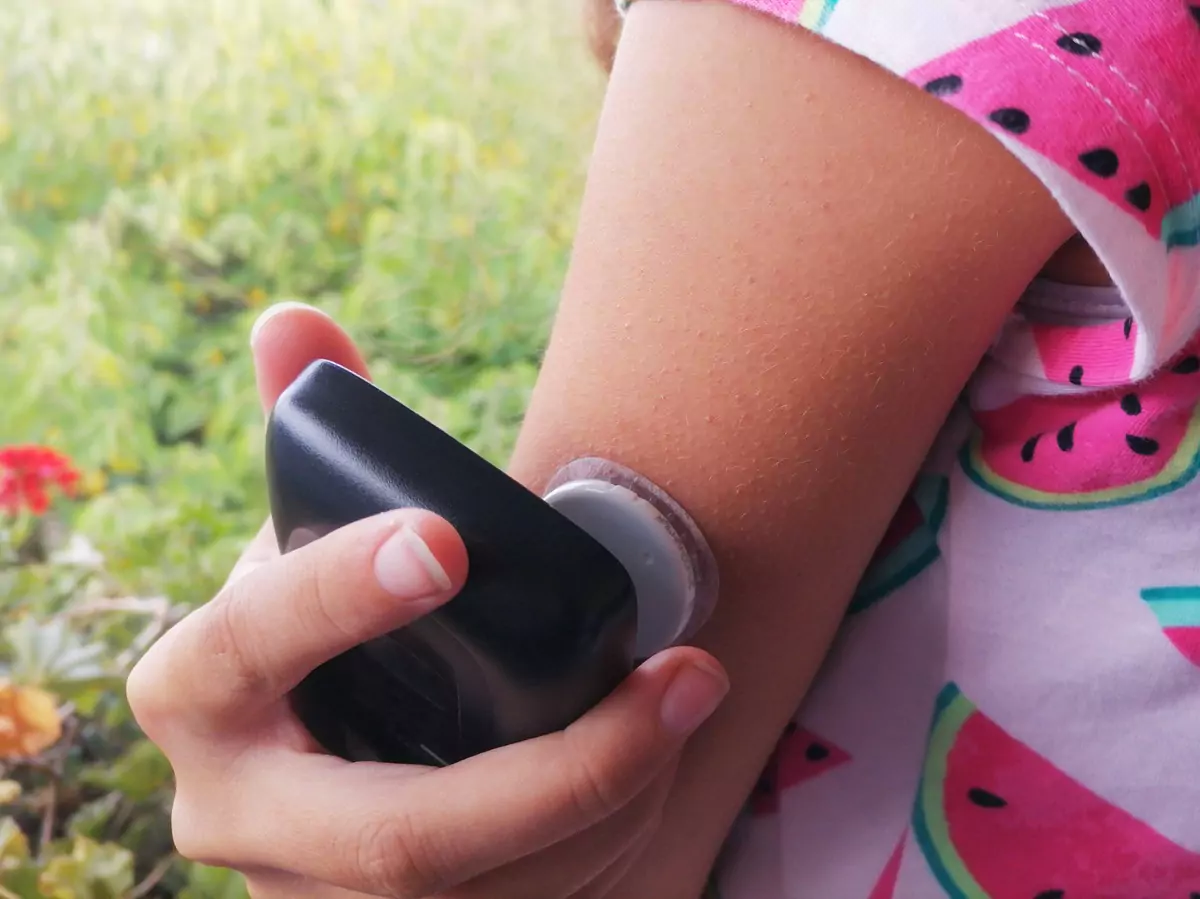






Dexcom vs Glucometer: a Detailed Comparison


Table of Contents
- Understanding Dexcom and Glucometer
- The Science Behind Dexcom and Glucometer
- How Dexcom Measures Glucose Levels
- How Glucometer Measures Glucose Levels
- SugarMD Advance Glucose Support: The Blood Sugar Champion
- Comparing Dexcom and Glucometer
- Accuracy of Readings
- Ease of Use
- Cost and Affordability
- Pros and Cons of Dexcom and Glucometer
- Pros of Dexcom:
- Cons of Dexcom:
- Pros of Glucometer:
- Cons of Glucometer:
- User Experiences with Dexcom and Glucometer
- Exploring the Challenges:
- Conclusion
- About The Author
The management of diabetes is a complex and multi-faceted task. Those living with the condition must monitor and regulate their glucose levels on a daily basis. For this, individuals typically rely on two main devices:
continuous glucose monitoring system and the traditional glucometer. In this article, we will be comparing Dexcom vs glucometer, focusing on their features, accuracy, ease of use, affordability, and much more.
Understanding Dexcom and Glucometer
Resembling a sci-fi device, Dexcom, a wearable medical gadget, consistently observes and charts glucose levels in people battling diabetes. Not only does this tiny, waterproof marvel sends out alerts when glucose levels fluctuate abnormally, but it also facilitates multiple users tracking a single person's glucose level.
Standing on the other end of the spectrum, glucometers, or blood glucose monitors, embody the conventional method of measuring glucose content in the blood. With a prick of a lancet and a test strip, the device promptly deciphers the glucose level from the blood sample and displays it on the screen. For many, glucometers remain the gold standard in blood glucose measurement.
Dexcom employs sensor technology, incorporating enzymes to gauge glucose levels. The sensor, embedded just below the skin, relays data to a receiver, which then transmits it to a mobile application. On the other hand, a glucometer combines a chemical reaction with a sophisticated detection system. The reaction between the glucose in the sample and a reagent strip, mediated by an enzyme, generates an electrical current to measure the glucose level.
Examining the accuracy of Dexcom and glucometers, it's crucial to note that factors like temperature, humidity, and movement may influence Dexcom's precision. When deciding which device suits you best, it's essential to weigh both the pros and cons, from accuracy and ease of use to cost-effectiveness, and most importantly, user experiences.
The Science Behind Dexcom and Glucometer
Gaining insight into the underlying science of Dexcom and glucometer helps you become an informed glucose monitor. Although both are meticulously designed for accurate glucose level assessment, their methods differ.
How Dexcom Measures Glucose Levels
As a Continuous Glucose Monitoring System (CGMS), Dexcom offers a panoramic view of the glucose landscape, recording levels every five minutes. Its tiny, disposable sensors, tucked under the skin, communicate data to a transmitter, which then passes it on to a monitor or compatible device. Additionally, Dexcom is rich with features including trend arrows, alarms, and alerts, offering users an informative overview of their glucose fluctuations over time.
Clinical studies vouch for the accuracy of Dexcom, considering it one of the most reliable CGMS devices in the market. With a margin of error within +/- 20% and 95% accuracy compared to a conventional blood glucose meter, it's a robust tool for individuals tracking their glucose levels.
Dexcom is more than a glucose monitor; it's an accessible, accurate health partner, instrumental in fostering a healthy lifestyle by keeping a vigilant eye on glucose levels.
How Glucometer Measures Glucose Levels
From the household kitchen to the doctor's office, glucometers or blood glucose meters as some prefer to call them, have etched their place as reliable sentinels of blood sugar monitoring. Picture this: a slight prick on your finger or forearm, a small blood sample, and voila! You get an instantaneous update of your blood sugar levels. Let's walk through the process.
You initiate by drawing a tiny blood sample, often from your finger or forearm. A droplet of this crimson liquid lands on a testing strip, which then slides into the snug slot of your glucometer. Awaiting its command on the other side is a straightforward user interface and a display screen designed for simplicity and easy reading.
As the test strip plunges into the glucometer, the device calls upon a biochemical ally, an enzyme named glucose oxidase, to quantify the glucose nestled in the blood droplet.
With diabetes knocking on their doors, many individuals turn to glucometers as the mainstay of their glucose monitoring regimen. Boasting rapid and effortless glucose assessments, glucometers deliver precise results in a snappy 10 seconds or so.
And what's more, some glucometers now come armed with the ability to interface with your smartphone or other digital devices, enabling you to chronicle your blood glucose narrative over time effortlessly. Accuracy is a glucometer's cornerstone, especially when serving those with diabetes. Assuring readings that typically land within +/- 20% of those obtained from stringent laboratory-based assessments, glucometers instill confidence in users.
In spite of their merits, glucometers demand a small sacrifice: the discomfort of a finger prick for blood samples. This could be a thorn in the side for those frequently checking their blood sugar levels. Moreover, glucometers may stumble upon errors if not treated with due care, and environmental elements like extreme temperature or humidity could challenge the precision of their readings.
SugarMD Advance Glucose Support: The Blood Sugar Champion
SugarMD advance Glucose Supports diabetics because:
- Improves blood sugar levels
- Curbs temptations for sweets
- Spurs weight loss
- Turbocharges metabolism and energy
- Paves the way for overall blood sugar wellness
- Perfect fit for those teetering on the brink of diabetes and Type 2 diabetics
Comparing Dexcom and Glucometer
When weighing Dexcom against a glucometer, we tread upon a landscape dotted with multiple factors. Let's dive into the unique selling points and drawbacks of each device to find a match for your personal needs.
Accuracy of Readings
Your glucose monitor is your compass in navigating the treacherous terrains of blood sugar fluctuations. The accuracy of Dexcom and glucometer readings might grapple with numerous challenges, including your current blood sugar level, the device's age, and how adeptly you perform the testing procedure.
Dexcom Accuracy:
Consider the Dexcom continuous glucose monitor (CGM) system a formidable contestant in the glucose monitoring arena. A study conducted under the auspices of the University of New South Wales conveys its proficiency, with its readings hovering within +-15% of a blood glucose reading. Additionally, Dexcom's accuracy seems to age like fine wine, improving as the device spends more time with you.
Glucometer Accuracy:
Glucometers, or blood glucose meters, as they are formally known, gauge the glucose concentration in droplets drawn from a fingerstick. The accuracy of their readings hinges upon the device's quality and the precision with which you draw and test the sample.
Despite the general consensus of glucometers providing more accurate readings than CGM systems, a study conducted by the University of Toronto suggests glucometers may stray by +-20% from a blood glucose reading.
Comparing Accuracy:
When you pit Dexcom and glucometers in an accuracy contest, both show resilience in delivering reliable readings. However, Dexcom appears to edge out glucometers, promising readings that stick within +-15% of a blood glucose reading.
It's worth noting that the precision of both devices could buckle under various factors such as your current blood glucose level, the device's lifespan, and the finesse of your technique.
Ease of Use
Device simplicity – it's a hallmark of successful design and a crucial element in determining the market success of any product. Primarily, devices aim to streamline life for individuals grappling with chronic conditions. Here, we'll put under the microscope two contenders: the Dexcom and the Glucometer, comparing their usability. Situated just below the skin's surface, the Dexcom is a continuous glucose monitoring system.
With a battery life stretching up to a fortnight, this device champions user-friendly navigation and control. Packed with software for tracking glucose trends and setting high or low alerts, it proves a boon for those new to diabetes management. In contrast, the Glucometer, a traditional device, relies on finger-pricks for glucose assessment. Users must repeatedly prick their fingers, a process that can quickly grow tiresome.
The accuracy of such readings hinges on blood quantity and external factors such as environmental temperature, making it less reliable. The Dexcom emerges as an excellent choice for round-the-clock glucose monitoring, tracking levels even without active user engagement. This offers comfort to diabetes patients.
Its maintenance-free design is another perk, not to mention the multitude of features like customizable notifications and a "pattern recognition" feature for trend spotting, enabling users to adjust lifestyle habits accordingly.
However, the Glucometer isn't without its challenges. It demands more effort and routine cleaning, a potential inconvenience. To sum it up, the Dexcom scores high on usability and convenience for diabetes patients. It comes with a host of features, sparing users extra effort. Conversely, the Glucometer requires more upkeep and labor. The choice between these two devices ultimately boils down to individual needs and circumstances.
Cost and Affordability
A significant discrepancy exists in the cost of utilizing Dexcom and Glucometer. This disparity is a pivotal consideration when choosing between the two. While neither device is cheap, Dexcom typically carries a heftier price tag. A three-part system – glucose sensor, transmitter, and receiver – make up the Dexcom continuous glucose monitoring apparatus.
The sensor alone rings up at approximately $500, and the transmitter and receiver add another $525, amounting to roughly $1,025. Factor in the replacement of Dexcom sensors every ten days, and costs climb even higher. In contrast, the Glucometer proves more wallet-friendly, with prices ranging from $15 to $50, contingent on the model and type.
However, the cost of replacement test strips can quickly accumulate. These strips, needed for each new blood sample, can cost anywhere from $0.50 to $3 per strip. While the Dexcom's upfront cost might be prohibitive for some, insurance companies often cover its cost. The Glucometer may seem more affordable initially, but the continuous cost of test strips adds up.
Insurance may also cover Glucometers, making it worthwhile to check with your provider. The financial burden of Dexcom and Glucometer must be taken into account when determining which device suits your needs. Each has its financial strengths and weaknesses, so the choice comes down to personal preference and budget.
Pros and Cons of Dexcom and Glucometer
Selecting between the Dexcom and Glucometer entails evaluating several factors. Both devices have unique strengths and weaknesses that must be considered. Here, we'll delve into each device's pros and cons to assist you in making an informed decision.
Pros of Dexcom:
Dexcom's benefits lie in its ability to provide real-time glucose readings around the clock. A champion of accuracy, this device does away with the need for constant finger pricking and blood testing. Dexcom lets you track glucose trends and warns you of significant fluctuations. Moreover, it's user-friendly and requires no calibration.
Cons of Dexcom:
Despite its benefits, there are the disadvantages of Dexcom. It's costlier than Glucometers and requires frequent maintenance, as sensors need replacing every few days and the device needs recharging. Additionally, the Dexcom app is only compatible with specific smartphones.
Pros of Glucometer:
Peek into the world of traditional blood glucose monitoring, and you'll find the user-friendly Glucometer standing tall. Not much of a fuss to maintain, this device is easily accessible and pretty friendly to your pocket.
Cons of Glucometer:
Not everything is rainbows and sunshine, though. The finger prick might induce discomfort, and the accuracy of these devices doesn't quite match up to Dexcom. Regular calibration and checks are essential for maintaining precision. What's more, they lack a feature to log trends over time, making tracking glucose levels a tad challenging.
Choosing between Dexcom and a Glucometer isn't as straightforward as it might seem. Understanding the pros and cons, the unique features each brings to the table can guide you towards an informed decision that perfectly complements your health needs.
User Experiences with Dexcom and Glucometer
The choice between a Dexcom and a Glucometer can be pivotal and significantly affect daily routines. Thus, it becomes necessary to delve into the experiences users have had with these devices.
Dexcom has garnered high praise from many users, its ease of use and accurate readings making blood glucose management a simpler task. An overwhelming number have reported the device enhancing their lifestyle, giving them confidence and control over their diabetes management. Yet, the humble Glucometer has its loyal followers. Users applaud its ease of use and reliable readings, the no-additional-costs factor acting as an added bonus.
Exploring the Challenges:
Like two sides of a coin, each device presents its own set of challenges. Dexcom, for instance, may sometimes provide false alarms or inaccurate readings. The Glucometer, on the other hand, necessitates the slightly bothersome task of finger pricking for each reading.
For those with sensitive skin, Glucometer's skin pricks could be irksome. While Dexcom evades the prick, its size might be a deterrent for some, possibly making it uncomfortable to wear. These challenges are not insurmountable, though. For some, they might be minor inconveniences; for others, they may demand more consideration. The choice will ultimately boil down to individual preferences and circumstances.
Conclusion
Dexcom and Glucometer are both reliable players in the realm of glucose monitoring. Dexcom, a continuous monitor, provides real-time, accurate readings and bids farewell to finger pricking. The Glucometer, the traditional monitor, asks for finger pricking but is easier on the wallet and more discreet in public settings.
Accuracy varies between the two devices, with user experiences tilting towards Dexcom. When it comes to ease of use, affordability, and discretion, the Glucometer seems to have an edge. When making the final call between Dexcom and Glucometer, evaluate the benefits and drawbacks of each device against your specific requirements.
Equipped with this knowledge, you can make an informed choice that best suits your needs. The decision, ultimately, rests with you. Dexcom or Glucometer, you hold the power to choose the device that fulfills your needs the best. Trustworthy and reliable, either choice ensures a safe glucose monitoring experience.
About The Author
Meet Dr. Ahmet Ergin a highly skilled and dedicated endocrinologist with a passion for diabetes care. Dr. Ergin earned his medical degree with honors from Marmara University in Istanbul. He completed internal medicine residency and endocrinology fellowship at Cleveland Clinic.
Dr. Ergin is board-certified in Internal Medicine, Endocrinology, Diabetes, and Metabolism due to his vast medical expertise. He's a certified diabetes educator, author of "The Ultimate Diabetes Book," and founder of "the SugarMD YouTube channel."
Dr. Ergin offers exceptional diabetes care to his patients in Port Saint Lucie, FL, helping them manage effectively. Disclaimer: These statements have not been evaluated by the Food and Drug Administration. Information on this website isn’t intended to treat, cure or prevent any disease. Discuss with your doctor and do not self-treat.
Written By Dr. Ahmet Ergin
457 total articles
Meet Dr. Ahmet Ergin, a highly skilled and dedicated endocrinologist with a passion for diabetes care. Dr. Ergin earned his medical degree with honors from Marmara University in Istanbul. He completed internal medicine residency and endocrinology fellowship at Cleveland Clinic. Dr. Ergin is board-certified in Internal Medicine, Endocrinology, Diabetes, and Metabolism due to his vast medical expertise. He's a certified diabetes educator, author of “The Ultimate Diabetes Book,” and founder of “the SugarMD YouTube channel.” Dr. Ergin offers exceptional diabetes care to his patients in Port Saint Lucie, FL, helping them manage effectively. For a closer look into his insights and experiences, connect with Dr. Ahmet Ergin on LinkedIn, Instagram, and YouTube.”
Disclaimer: These statements have not been evaluated by the Food and Drug Administration. Information on this website isn't intended to treat, cure or prevent any disease. Discuss with your doctor and do not self-treat.
Products















